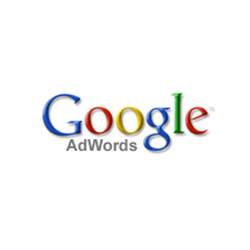
Google makes 97% of its billions upon billions of dollars with their Adwords program, but doesn’t really have a local sales staff to teach local business owners how to make the most of their advertising dollars, let alone how the system even works, so this article should help you get started with understanding the Adwords system.
Wow… first of all, it’s crazy to me that a business owner would put so much money into a system that they didn’t even fully understand. But that being said, I see it happen all the time, so hopefully this should shed some light on the subject.
Below is a Search Engine Results page, and you can see when you purchase Adwords, your ad will be shown somewhere in the red section below.
Now, the rank of your ad, which greatly effects your traffic, is dependent on many factors, the most important of which include:
- Bid price – price you are willing to pay for a click from each keyword
- Quality Score – Score that search engines give to each advertiser for each keyword
- CTR (Click-Through-Rate) – The % of people who see your ad on search engines that click on it
- Ad Relevance – how relevant is your text ad for each keyword
- Landing Page – The page that the user gets taken to when they click on your ad
The prices you pay for your ads are based on a “silent auction” process. The business owner states what they are willing to pay for each keyword every time someone clicks on your ad, and the price will fluctuate depending on how competitive and how many companies are bidding on that word.
So what about the little guy? A lot of business owners I’ve spoken with think; Hey… I don’t have the huge marketing budgets like my competitor down the street, I’ll never be able to compete. Not true my friend, there are ways in which your ad rank can actually jump above a competitors ad who’s bid price is way higher than yours. The easiest way to influence your Ad Rank is to improve your Quality Score.
Quality Score is a 1 – 10 variable that is given to advertisers based on the relevance of the advertiser to the keyword being searched. When ranking the ads, Google makes an equation (bid price * quality score) to determine rank.
Get ready for some math… for example, if we have 3 different advertisers (note that this is a very simplified example for the sake of explanation):
| Business | Bid Price | Quality Score | Total Score | Ad Rank |
| Biz 1 | $5.00 | 2 | 10 | #3 |
| Biz 2 | $3.00 | 5 | 15 | #2 |
| Biz 3 | $2.00 | 9 | 18 | #1 |
So in this example, you see that even though business #3 only bid $2/click, they will be ranked #1 on the search engine results page because they had a better ad rank than the competition. Google always wants to deliver the best results to the end user, so they reward you for being the most relevant result for each keyword by bumping up your quality score like in the example above. Some of the factors that go into this ranking are Click-through-rate (CTR), ad relevance, and landing page. This is the stage of the game where you can really get an advantage against your competitors, and cut your costs at the same time.
So the next logical question… how can I improve my quality score?
The easiest way is to improve your CTR. As a general rule, your CTR should be at least 1-2%, although I’ve seen some as high as 25-30% for some precise keywords. If you aren’t at least 1% CTR, you should consider testing different text ads against one another to see which one functions better for you. If you keep trying multiple ads and nothing is working, consider dropping that word all together.
Also, you should try to get your ads as relevant to the search keywords as possible. Try setting up different ad groups, and tailor your ads to be very keyword rich.
Along with this, your landing page should include keyword rich text and relevant content to the searched words. The landing page should also have a fast load time and be easily navigated.
For more information on running Google Adwords campaigns, check out my blog posts: 15 tips to creating a successful pay-per-click campaign, and How to: Optimize your landing page conversions in 15 easy steps.
